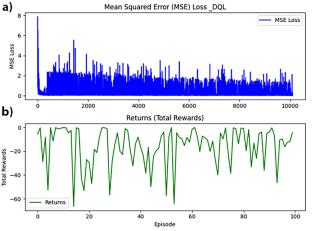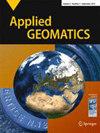Indoor navigation app of healthcare facilities using machine learning algorithms
Abstract
The rapid population growth in Jordan due to migration trends has placed significant pressure on the country’s healthcare infrastructure, further strained by the emergence of new diseases. To address the challenge of indoor navigation within hospitals, this research leverages Location-Based Services (LBS) to develop an intelligent navigation application. The study focuses on optimizing pathfinding within the first floor of Al-Istishari Hospital in Amman using Deep Q-Learning (DQL) models to enhance accessibility and efficiency in hospital environments. The indoor navigation system was developed using Python’s Tkinter library and features a custom HospitalGrid environment. OpenAI Gym was integrated to simulate agent-environment interactions, enabling reinforcement learning agents to navigate hospital layouts efficiently while avoiding obstacles. A comparative analysis with Dueling Deep Q-Network (Dueling-DQN) was conducted under consistent hyperparameter settings. Results show that DQL provides more stable performance in structured environments, while Dueling-DQN offers improved learning efficiency in complex layouts due to its separation of state value and action advantage estimations. Although further optimization is needed in terms of Mean Squared Error (MSE) and return values, the proposed system demonstrates strong potential for hospital navigation and provides a foundation for future real-time healthcare applications.



 求助内容:
求助内容: 应助结果提醒方式:
应助结果提醒方式:


